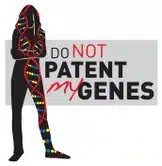PUBLISHED: 14th June 2023

by Lisa Schlager, Vice President, Public Policy
June 13, 2023 - On this date 10 years ago, I stood on the steps of the U.S. Supreme Court (SCOTUS) along with other advocates awaiting the ruling on the Association for Molecular Pathology (AMP) v. Myriad Genetics case. Sensing the importance of the day, I’d pulled my sixth-grade daughter out of school to accompany me. I figured she would learn more by experiencing the day instead of reading or hearing about it secondhand.
At the time, one company had patents—and thus a monopoly—on the BRCA1 and BRCA2 genes. Many in industry and law argued that these patents promoted discovery and encouraged the development of innovative diagnostic tests. However, patient advocacy organizations like FORCE, healthcare professionals and researchers argued that the patents increased costs, restricted patient access, hindered research, and fostered information silos via proprietary genetic databases.
That day, the court unanimously ruled that naturally occurring DNA cannot be patented. The court specifically held that the DNA sequences of the BRCA1 and BRCA2 genes are products of nature, invalidating the patents on these genes. The ruling brought an end to the monopolization of genetic mutations.
Over the past decade, the price of genetic testing has dropped significantly, from over $3,000 to an average of $200 for patients. In addition, we have gone from testing for only the BRCA mutations to the development of multigene panels that test for dozens of mutations associated with an increased risk of hereditary cancer. Data sharing and research have boomed, facilitating an unprecedented era of growth in the genetic and biopharmaceutical industries. The court’s ban on gene patents was instrumental in facilitating these positive changes.
No rest for the weary
While the 2013 SCOTUS decision was an unprecedented “win” for the hereditary cancer community, we cannot rest on our laurels. In recent years, certain members of Congress have initiated efforts to revise U.S. patent law, claiming that it is too restrictive and impedes innovation. If they and the parties backing these efforts have their way, crucial legal rulings like AMP v. Myriad may be abolished, and we could return to an era where genes and other “products of nature” can be patented.
FORCE, AMP, the American Civil Liberties Union (ACLU) and others are actively fighting any attempts to overwrite or reverse the court rulings that have been beneficial to so many patients and families. In the meantime, there are many more battles to wage for members of our community. Read about FORCE’s advocacy priorities and join us in taking action to improve public policies that impact access, healthcare costs, genetic privacy and more.

Learn more:
• News & Commentary - ACLU: The Fight to Take Back Our Genes
• Podcast - 10 Years On: The Impact and Effects of AMP vs. Myriad
• Webinar - A Landmark Ruling: Celebrating 10 Years of Freedom from Gene Patenting
• Book - The Genome Defense: Inside the Epic Legal Battle to Determine Who Owns Your DNA
• Statement - Myriad Genetics Statement on the 10th Anniversary of the Gene Patent Case
POSTED IN: Laws, Protections And Public Policy
TAGS: Genetic Testing , BRCA1 , BRCA2 , Advocacy , FORCE
2 Comments
July 6, 2023
Thank you for your work to protect our genes from being patented!
Kim Horner
Reply
July 6, 2023
As a 'recipient' of thorough genetic testing (thanks to Kaiser Permanente, So. California), I am advocate of getting as much information as possible. Thanks to FORCE for all the research and support and information. FORCE is really one of the most reliable organizations which exist--always available and current! CURRENT!!
Wendy Tucker
Reply